The best Chromebooks can provide a top-notch computing experience in 2020. They're perfect for students, grandparents, and anyone looking for a trouble-free laptop with long battery life. We've reviewed and rated the absolute best Chromebooks so that you can find the best value at any budget. Our buyer's guide will help you find the perfect Chrome OS laptop or tablet if you're switching from a Windows or Mac, or if you're buying your first laptop entirely.
The 10 Best Chromebooks in 2020
- Lenovo Flex 5 Chromebook — Best Chromebook Overall: A powerful, portable and near-perfect all-around Chromebook for students, travelers, businesspeople and everyday Chromebook users.
- ASUS Chromebook Flip C434 — Best Premium Pick: A large and premium Chromebook with a long-lasting battery, plenty of power, and a great trackpad.
- Lenovo Chromebook C340 (11.6") — Best Value Chromebook: This compact Chromebook is perfect for users on-the-go and those needing a quality laptop on a budget.
- Acer Chromebook Spin 713 — Best For Gaming & Performance: Acer delivers a powerful productivity and gaming punch with a 10th Gen Intel processor and up to 16GB of RAM.
- ASUS Chromebook Flip C214 — Best For Students: This ultra-portable Chromebook is rugged, lightweight, and perfect for the clumsy student in your life.
- Lenovo Chromebook C340 (15.6") — Best Big-Screen Chromebook: If you want a bigger, more spacious version of our top pick, this is for you.
- Google Pixelbook Go — Best For Upcoming Features: Google's own Pixelbook line gets Chrome OS features first, and has one of the best keyboards and trackpads ever.
- Samsung Galaxy Chromebook — Best 4K Chromebook: This powerful and impressively thin Chromebook has an absolutely beautiful screen perfect for watching movies or editing photos.
- Lenovo Chromebook Duet — Best Tablet: Coming with a kickstand and detachable keyboard in the box, Lenovo gives us the best tablet experience on a Chromebook to date
- Acer Chromebook 715 — Best Budget Workhorse: This super-sized Chromebook offers good performance at a great price, and the full keyboard with number pad is a huge help for teachers and businesses.
What are the best Chromebooks you can buy today?
The beauty of the Chromebook market is that there are so many options to choose from. If you want something specifically for portability and battery life, there are numerous great choices. Similarly, if you don't plan to move it from a desk and would prefer a big, beautiful display and plenty of CPU power to back it up, there are lots of options for you, too.
Our top pick is the Lenovo Flex 5 Chromebook, which hits all of the right markets when it comes to a laptop, including build quality, performance, battery life, and longevity, all for a very fair price. If you want something a bit more premium, the ASUS Chromebook C434 is incredibly capable and would rival many mid-range Windows 10 laptops for much less money. Its 14-inch touchscreen is stunning, as is its spacious keyboard and superb trackpad.
The Lenovo C340 is an excellent option in each size: the 11.6-inch version is great for those wanting a dependable laptop on a budget and the 15-inch version offers excellent upgrades like a backlit keyboard with a number pad and an Intel i3 processor. Google's own Pixelbook Go is our choice if you want the latest Chrome OS features straight from Google itself, and it has an amazing keyboard and trackpad combo to boot. And if you're a student, or buying for someone who is, the ASUS Chromebook Flip C214 is so light you'll forget it's in your bag.
Here's our detailed list of the best Chromebooks you can buy.
1. Lenovo Chromebook Flex 5: Best Chromebook Overall
Bottom line: With a powerful 10th Gen Intel Core i3 chip, a beautiful 13-inch 1080p touchscreen, backlit keyboard and remarkably reasonable price, the Flex 5 is a great Chromebook for just about everyone. Despite a slim and lightweight build, the Flex 5 has a 360-degree hinge for easy conversion to tent or tablet mode, along with upward-firing stereo speakers, and support for both USI Stylus and Wi-Fi 6 for power-users.
Display size: 13.3-inch 1080p IPS touchscreen | CPU: Intel Celeron 5205U / Intel Core i3 | RAM: 4GB | Storage: 32-128GB | Battery life: 10 hours | Ports: 2x USB-C, 1x USB-A, microSD, audio combo jack | Weight: 3 lbs | Colors: Graphite Grey | Other features: Wi-Fi 6, Bluetooth 5.0, 720p camera, 45W charger | Auto Update Expiration date: June 2028
| Processor | Storage | RAM | Vendor |
|---|---|---|---|
| Intel Celeron 5205U | 32GB | 4GB | $360 at B&H |
| Intel Celeron 5205U | 64GB | 4GB | $430 at B&H |
| Intel Core i3 | 64GB | 4GB | $410 at Amazon |
We recommend the Intel Core i3 version version of the Flex 5 for its additional power and long-term value.
Pros
- Compact design
- USI Stylus compatibility
- Loud upward-facing speakers
- Backlit keyboard
Cons
- Limited configuration options
The best Chromebook you can buy isn't necessarily the most powerful or the most expensive. It combines a number of features into a compact body that will appeal to almost all Chromebook users, from novices to experts, students to professionals. If your next laptop is here to work hard (and play harder), check out our new favorite Chromebook on the market today, the Lenovo Flex 5 Chromebook. This laptop shares much of its design and feel with the previous overall pick, the Lenovo C340-11, and indeed it's barely an inch bigger than the 11.6-inch laptop despite having a bright 13.3-inch touchscreen inside it.
The bezels around the Flex 5's 1080p screen are quite slim — just enough for you to grip when flipping between laptop, stand, and tablet modes. That means you'll get a compact laptop with a big-enough screen for quite comfortable split-screening. You'll also get a backlit keyboard that's comfortable enough to type on for 10 hours a day — it's what I'm using to write this right now — and sitting on either side of the keyboard are speakers that will get nice and loud (though a bit tinny when you start blaring).
This version comes with Intel's latest 10th Generation i3 processor — there's also a version with a Celeron available, but it's well worth upgrading to the i3 — along with 4GB of RAM and 64GB of storage, which is plenty of power for today's complex business tasks. Like many of the newer Chromebooks on this list, the Flex 5 comes with two USB 3.1 Type-C ports and a single legacy USB-A port, as well as a microSD slot for expandable storage and a headphone jack. You get Wi-Fi 6 for faster, more reliable connectivity — and Bluetooth 5.0, so your headset won't drop out as often — and the 45W charging brick in the box tops the 52.5Whr battery in just 90 minutes.
Chrome OS was built to run well on modest hardware, so on the Flex 5's mid-range hardware, things are smooth and stable. While we're not thrilled there aren't larger storage and memory sizes — would it kill Lenovo to offer 8GB models?! — there's very little to otherwise complain about here. 4GB has been enough for all the work I've done, even when I've had multiple windows and Android apps open.
When I initially reviewed the Flex 5, it didn't seem all that amazing on paper, especially compared to the Project Athena Chromebooks that have been coming out throughout the spring and summer. Once I'd spent a few days with it, though, the Flex 5 had completely won me over. It's more than the sum of its parts — and way more than its modest price tag would have you believe.
Best Chromebook Overall
Lenovo Chromebook Flex 5
Lenovo already knows how to make a great small Chromebook, and with just a few small upgrades, it makes a Chromebook that can please just about everybody.
Best Chromebooks in 2020
- 1. Lenovo Flex 5 Chromebook (From $410)
- 2. ASUS Chromebook Flip C434 (From $569)
- 3. Lenovo Chromebook C340 (11.6") (From $320)
- 4. Acer Chromebook 713 (From $630)
- 5. ASUS Chromebook Flip C214 (From $440)
- 6. Lenovo Chromebook C340 (15.6") (From $350)
- 7. Google Pixelbook Go (From $649)
- 8. Samsung Galaxy Chromebook (From $999)
- 9. Lenovo Chromebook Duet (From $299)
- 10. Acer Chromebook 715 (From $369)
2. ASUS Chromebook Flip C434: Best Premium Chromebook
Bottom line: The ASUS Chromebook Flip C434 is essentially a 14-inch Chromebook in a 13-inch shell, offering you a bigger screen while still being portable. Between its thin, solid construction, excellent battery life, and options for higher RAM and storage, the C434 is a Chromebook that can do it all. One of the few Chromebooks to offer a backlit keyboard, it's perfect for long nights and dim offices.
Display size: 14-inch 1080p IPS touchscreen | CPU: Intel Core m3 / i3 / i5 | RAM: 4-16GB | Storage: 64-512GB | Battery life: 10 hours | Ports: 1x USB-A, 2x USB-C, microSD, audio combo jack | Weight: 3.30 lbs | Colors: Spangle Silver | Other features: Backlit keyboard, 720p camera, 45W charger | Auto Update Expiration date: June 2026
| Processor | Storage | RAM | Vendor |
|---|---|---|---|
| Intel Core m3 | 64GB | 4GB | $569 at Amazon |
| Intel Core m3 | 64GB | 8GB | $594 at Amazon |
| Intel Core i5 | 128GB | 8GB | $780 at Newegg |
We recommend the Intel Core m3 version with 8GB of RAM as it is the best balance of performance and value.
Pros
- Exceptional aluminum design
- Good backlit keyboard
- High-quality display
Cons
- The 8GB models are getting harder to find
- Keys are difficult to see in certain lighting conditions
ASUS is one of the most well-known Chromebook manufacturers, and has been since day one. What sets the company apart from the competition is a focus on creating a premium hardware experience in as compact a shell as possible. With the the Chromebook Flip C434, ASUS crammed what is essentially a 14-inch Chromebook into a 13-inch body.
ASUS focuses on the fundamentals here, including a really high-quality 1080p LCD touch panel surrounded by slim bezels, along with an oversized precision trackpad, a backlit keyboard — a rarity at this price point — and a tapered aluminum design that's reminiscent of the MacBook Air.
The hinge flips 360-degrees, which lets you set the Chromebook up in traditional, "tent", and tablet modes — hence the Flip in the name — all in a body under three pounds. The included Intel Core m3-8100y processor isn't the fastest one available, but it's more than good enough for daily usage, especially when paired with the optional 8GB of RAM — though the standard version still comes with an ample 4GB. There's also an upgraded model with an i5 processor and 128GB of storage if you need an even beefier setup, but the m3 should be enough for most of us
As for inputs, you get two USB-C ports and a single USB-A port along with a microSD card slot. The laptop advertises eight to 10 hours of battery, and that's around what we usually got, too. Ports are one of the reasons why I'm still recommended the C434 over the newer ASUS Chromebook Flip C436; the C436 only has USB-C ports and microSD, no USB-A port. Yes, USB-C hubs are plentiful, but having at least one USB-A port on a laptop is very useful, especially for a laptop this big.
The other reasons I recommend the C434 over the C436 is that the C434 has most consistent battery life — though battery has improved after the launch bugs were quashed — and the price. As the newer, shinier, more premium version of C434 with beefier processors, upgraded RAM and SSD storage over eMMC storage, the C436 is hundreds more than last year's model while offering a performance boost that most people will never be able to really take advantage of. The C434 is like a Audi while the C436 is like an Alfa Romeo: there's premium and then there's more-money-than-sense luxury.
Best Premium Chromebook
ASUS Chromebook Flip C434
The 14-inch touchscreen excels at multitasking, and the backlit keyboard is easy to type on late into the night.
3. Lenovo Chromebook C340 (11.6"): Best Value Chromebook
Bottom line: A proven performer from a company that knows how to build incredible laptops, the Lenovo C340 has all the ports we want in a Chromebook, and enough get-up-and-go to get you through a long day of work, schoolwork, or reddit-surfing. Given its relatively low starting price, you can forgive the plastic body, but the aluminum lid gives the C340 a premium look and feel. You can also expect around nine hours of battery life, a springy and spacious keyboard for a laptop of this size, and a responsive 11.6-inch display that gets the job done so long as you're not sitting in full, direct sunlight.
Display size: 11.6-inch 1366x768px IPS touchscreen | CPU: Intel Celeron N4000 | RAM: 4-8GB | Storage: 32-64GB | Battery life: 10-hours | Ports: 2x USB-A, 2x USB-C, microSD, audio combo jack | Weight: 2.7 lbs | Colors: Sand pink or Platinum Grey | Other features: 720p camera, 45W charger | Auto Update Expiration date: Jun 2026
| Storage | RAM | Vendor |
|---|---|---|
| 32GB | 4GB | $259 at Walmart |
| 64GB | 4GB | $320 at Amazon |
Pros
- Compact design
- Good build quality
- Long-term support
Cons
- Plastic body
- Limited port selection
- Screen is relatively low resolution
Normally when you're shopping for a new laptop, it's easy to get caught up in specs and end up buying the biggest, most powerful laptop you can afford, but for Chromebooks, that isn't necessarily going to get you a better experience. The laptop that gave me a top-notch experience for most of 2020 has been one of the more affordable Chromebooks on the market: the Lenovo Chromebook C340 (also known as the C340-11), which is affordable, reliable, and finally readily available again after selling out like hotcakes during the first few months of the pandemic.
Despite being a 11.6-inch laptop, the Lenovo C340-11 has more ports than many 13-15-inch laptops, featuring a USB-A and USB-C port on each side of the machine, large volume and power buttons, and a microSD slot. This new model is also slated for almost seven years of Chrome OS updates. It's lightweight and highly portable, easy to slide into a bag as you move from meeting to meeting and quick to wake back up once you get where you're going.
This Chromebook has proven very, very popular over the several months it's been available: Amazon can rarely keep 64GB models in stock — especially the alluring Sand Pink version — and most other retailers sell out just as quickly with the 32GB models. If you can find a C340-11, especially a 64GB model, don't wait too long; blink and they'll be gone.
The C340-11 has been out for almost a year now, and it's worked like a champ so far, lasting over nine hours on a single charge and holding up with over a dozen tabs open. The bezels around the screen are large, but they come in handy when you flip it over into tablet mode, and the keyboard is easy to type on for hours at a time.
Best Value Chromebook
Lenovo Chromebook C340 (11.6")
With double the USB ports and all-day battery life, Lenovo's aluminum-lidded 2-in-1 laptop is more than a pretty face.
4. Acer Chromebook 713 Best Chromebook For Gaming & Performance
Bottom line: If you need performance and power in your Chromebook, you'll want to look at a Project Athena Chromebook so that you know it's powerful, fast, and secure. This 13.5-inch 2-in-1 outdoes the rest of the current Project Athena crop in ports, durability, and value, giving you a robust laptop for hundreds less than its competitors. There's even an HDMI port built-in, for professionals that are constantly hooking up to external monitors or the projector in the conference room.
Display size: 13.5-inch 2256x1504px 3:2 touchscreen | CPU: Intel Core i3 / i5 / i7 | RAM: 8-16GB | Storage: 64-256GB | Battery life: 10 hours | Ports: 1x USB-A, 2x USB-C, HDMI, microSD, audio combo jack | Weight: 3 lbs | Colors: Silver | Other features: Project Athena certified, backlit keyboard, 720p webcam, 45W charger | Auto Update Expiration date: June 2028
| Processor | Storage | RAM | Vendor |
|---|---|---|---|
| Intel Core i5 | 128GB | 8GB | $630 at Best Buy |
Pros
- Powerful futureproof specs
- Bright 3:2 screen for productivity
- HDMI port built-in
Cons
- Speakers aren't great
- Limited availability
Like the Acer Spin 13 before it, Acer Chromebook Spin 713 is one of the most powerful Chromebooks out there that doesn't just go completely overboard in terms of price. Project Athena is a program stated by Intel working with manufacturers to produce laptops that will be fast, powerful, and reliable. So, as a Project Athena Chromebook, there's an expectation of speed and power that the Spin 713 absolutely delivers on.
Even with dozens of tabs open and a couple of Android apps, this Chromebook keeps chugging along, though the fan may kick on from time to time — yes, an Intel Core i3, i5, or i7 requires a fan to keep it cool once you really get it going. The bottom of the laptop doesn't heat up too much, so you can still use it in your lap pretty easily, but you will hear the fan every now and then.
Acer differed the Chromebook Spin 713 from the first two Project Athena Chromebooks in two ways. Firstly, you actually have more than the USB-C ports; there's a USB-A port and an HDMI port on the 713, which means that you aren't scrambling for a USB-C hub immediately. Secondly, while there are some more pricey configurations if you want an i7, the standard i5/8GB/128GB model is a completely reasonable price.
If you want to game on a Chromebook — beyond Android apps and web-based games — there's still not much support yet beyond Stadia, but we know that Google is working to increase the Steam compatibility on Chromebooks through Chrome OS's Linux capabilities. Since the Spin 713 is Project Athena certified, it's going to be one of the Chromebooks with the best chance to actually take real advantage of it once Google and Steam have things where they want it.
In the meantime, this is still the best bang for your buck on a high-performance Chromebook, and that 3:2 aspect ratio on the screen is something many professionals swear by on their work machines. That aspect ratio isn't as fun for watching movies, but it's great for seeing more data on your screen at a time, especially while split-screening, and the 2K resolution gives you a more crisp image.
Best for Gaming & Performance
Acer Chromebook Spin 713
If you're someone who loves a 3:2 screen and a beefy, beefy processor to power it, this Project Athena Chromebook is for you.
5. ASUS Chromebook Flip C214 Best Chromebook for Students
Bottom line: Lightweight and portable, the ASUS Chromebook Flip C214 is one of the most versatile Chromebooks out there. It's got a spill-resistant keyboard and has been Mil-STD 810G certified, which means a drop from a bag or table won't hurt it, making it perfect for a student of any age. Plus, the included stylus makes it school-friendly!
Display size: 11.6-inch 1366x768px touchscreen | CPU: Intel Celeron N4000 | RAM: 4GB | Storage: 32GB | Battery life: 12 hours | Ports: 2x USB-C, 1x USB-A, microSD, Audio combo jack | Weight: 2.6 lbs | Colors: Black | Other features: 720p camera, 45W charger, optional built-in stylus | Auto Update Expiration date: June 2026
| Storage | RAM | Stylus | Vendor |
|---|---|---|---|
| 32GB | 4GB | 🚫 | $480 at Amazon |
| 32GB | 4GB | ✅ | $500 at Amazon |
Pros
- Durable, drop-resistant build
- Spill-resistant keyboard
- Built-in stylus (on some models)
- 360-degree hinge
Cons
- Limited storage options
The 11.6-inch ASUS Chromebook Flip C214 folds completely flat into a tablet with a high-strength zinc alloy hinge that shouldn't wear out no matter how hard your kid — or you — are on it. With a channeled, spill-resistant keyboard, dropping a drink on it shouldn't immediately send you to a repair store, just to the kitchen for a cloth.
ASUS has a number of student-friendly features on the C214, including a fully-articulating hinge, a built-in stylus on the premium model, and plenty of ports for plugging in accessories. The main draw here, though, is how portable the laptop is: it can fit in the smallest of backpacks, making it perfect for kids starting out bringing a laptop to school.
You're also going to get a very school-friendly battery life of around 12 hours of use, which should get most people through a full day. Even better, ASUS has thought of every use case, adding a rubberized grip to the edges of the C214, ensuring that clumsy hands won't drop it while toting it around the classroom, and the anti-scratch coating should keep it from looking too scuffed after months and years of constant attention.
We obviously recommend this for students of all ages, but C214 would do just as well with someone looking for a not-too-expensive Chromebook that doesn't take up much space in a bag or purse. It's not the prettiest laptop ever made, but it gets the job done.
Best Chromebook for Students
ASUS Chromebook Flip C214
This version of the C214 improves on the 2017 model in about every way: slimmer, more powerful, and better optimized.
6. Lenovo Chromebook C340 (15.6") Best Big-Screen Chromebook
Bottom line: Whether you intend to park it at your desk or haul it from work to home and back, if you need all the screen space without breaking your budget, Lenovo has the Chromebook for you. The C340-15 is powerful enough that you'll actually want to work on it, and the 2-in-1 form factor means you can prop it up in tent mode after-hours for movie marathons in your hotel room.
Display size: 15.6-inch 1920x1080px IPS touchscreen | CPU: Intel Pentium Gold / Intel Core i3 | RAM: 4GB | Storage: 32-64GB | Battery life: 10 hours | Ports: 1x USB-A, 2x USB-C, microSD, audio combo jack | Weight: 4.37 lbs | Colors: Mineral Grey | Other features: Full-size keyboard with number pad, 720p camera, 45W charger | Auto Update Expiration date: June 2025
| Processor | Storage | RAM | Vendor |
|---|---|---|---|
| Intel Pentium Gold | 32GB | 4GB | $431 at Amazon |
| Intel Pentium Gold | 64GB | 4GB | $449 at Best Buy |
| Intel Core i3 | 64GB | 4GB | $500 at Best Buy |
Pros
- Full keyboard with number pad
- Solid build and performance
- Huge 2-in-1 Chromebook
Cons
- No 8GB option
- Screen could be brighter
If the Lenovo Flex 5 and Lenovo C340-11 that we've already covered so far sound good, but are just too small for your liking, Lenovo also makes a super-sized version in the Lenovo Chromebook C340 (15.6"), also known as the Lenovo C340-15. Unlike the smaller C340-11, the C340-15 has a choice of processors, but unless you absolutely have a hard limit to your budget, I recommend skipping the Pentium Gold models and instead grabbing the i3 models so that you have a little more power for your multi-window sessions and any Linux apps you might use.
This may not have a 4K screen like the Lenovo C630 did, but it's significantly less expensive and has a more durable, pleasant-in-the-hand design. The C340-15 may only have up to 64GB of storage — please, please, do yourself a favor and get the i3/64GB model — but it also has a microSD card slot so you can load up on movies for that cross-country flight. Its 56kWh battery can last 10 hours, long enough to watch the three Lord of the Rings films (theatrical, not Extended Edition) before needing to find a USB-C charger.
The 2-in-1 form factor might not seem like it's all that useful for a laptop this big — and yeah, a 15.6-inch tablet is a bit much — but being able to flip it back into stand mode is wonderful if you have a workstation at work with an extra monitor or a mechanical keyboard. Stand mode allows you to get that nice big touchscreen closer to your hands so that it's easier to tap on while hard at work, and after hours, you can kick it into stand mode again to keep the keyboard out of the way while you're watching movies in bed, or playing Freecell while you wait for the next meeting to roll around.
Another beautiful feature of the C340-15 is the addition of a number pad to the full-size keyboard, which is wonderful for those of us who prefer to lock a Chromebook via PIN or need to input a lot of numbers and grade scores. It's a small improvement, but it has a huge impact.
Best Big-Screen Chromebook
Lenovo Chromebook C340 (15.6")
This super-sized successor to our favorite 11-inch Chromebook brings a solid offering to the large-screen segment of the Chromebook market.
7. Google Pixelbook Go: Best Chromebook for New Features
Bottom line: Google's own Chromebook, the Pixelbook Go, is a traditional clamshell laptop with one of the best keyboards and trackpads we've ever used. It also has excellent integration with Google Assistant, and may get new Chrome OS features before other Chromebooks. The magnesium body is light and strong, and even the entry-level model comes with 8GB of RAM for plenty of tab-hopping.
Display size: 13.3-inch 1080p touchscreen / 13.3-inch 4K touchscreen | CPU: Intel 8th Gen Core m3 / i5 / i7 | RAM: 8-16GB | Storage: 64-256GB | Battery life: 12 hours | Ports: 2x USB-C, audio combo jack | Weight: 2.3-2.4 lbs | Colors: Just Black or Not Pink | Other features: 1080p camera, 45W charger, Titan security chip | Auto Update Expiration date: June 2026
| Processor | Storage | RAM | Vendor |
|---|---|---|---|
| Intel Core m3 | 64GB | 8GB | $649 at Amazon |
| Intel Core i5 | 128GB | 8GB | $800 at Amazon |
| Intel Core i5 | 128GB | 16GB | $899 at Amazon |
| Intel Core i7 | 256GB | 16GB | $1248 at Amazon |
Pros
- Lightweight, compact design
- Incredible keyboard and trackpad
- Best-in-class battery life
Cons
- Limited port options
- Pricey
- Limited hinge range
While the 3:2 form factor of the original Pixelbook certainly had its fans, I'm pleased as punch that the Go uses a far more sensible 16:9 aspect ratio, which is better for split-screening and better for in-flight movies. The Pixelbook Go can't fold back into tablet mode like the Pixelbook — and most other Chromebooks on the market — but that also means it didn't need huge grippable bezels around the screen, allowing it to squeeze down into a slim footprint. This laptop, despite a spacious 13.3-inch display, only weighs 2.3 pounds.
Another great feature of the Go is a more functional design that's still luxurious. The Go has rounded edges and a wavy ridged bottom that increases grip and stability. The Pixelbook Go also has two colors — Not Pink and Just Black — quiet keys that are among the best we've ever typed on, and a lightweight magnesium body similar to that used by the Microsoft Surface line.
If you live for having the latest features, the Pixelbook Go is for you because, as Google's branded Chromebook, this shiny baby gets all the new toys before anyone else does, especially once you hope onto the Beta or Dev channels. You'll also want to invest in some USB-C hubs, as the Pixelbook Go only has three ports: a USB-C port on either side of the laptop and a headphone jack.
While Google charges a premium for this Pixelbook compared to our other top picks, the Pixelbook Go is one of our favorite traditional laptop designs. Every aspect of the design has been considered, from the quiet-close magnetic latch to the high-quality 1080p camera, so important in our current environment.
Thankfully, if you're willing to spend a bit more, Google offers premium Pixelbook Go options that go up to a Core i7 with 16GB of RAM and 256GB of storage — though we've recommend sticking with the Core i5 version that has a generous 8GB of RAM and 128GB storage.
Best Chromebook for New Features
Google Pixelbook Go
While not a 2-in-1, the Pixelbook Go is a powerful, premium clamshell Chromebook with a magnificent magnesium shell.
8. Samsung Galaxy Chromebook Best 4K Chromebook
Bottom line: If you want the absolute best screen you can get on a Chromebook, you know it's got to be a Samsung. The Samsung Galaxy Chromebook is not only beautiful, it is powerful, with a 10th Gen i5 processor and 256GB SSD storage. This is a super-thin, fanless laptop with an i5, so just keep in mind this laptop will get hot during longer sessions.
Display size: 13.3-inch 3840x2160px (4K) AMOLED touchscreen | CPU: 10th Gen Intel Core i5 | RAM: 8GB | Storage: 256GB | Battery life: 8 hours | Ports: 2x USB-C, microSD, audio combo jack | Weight: 2.29 lbs | Colors: Fiesta Red or Mercury Grey | Other features: Project Athena certified, backlit keyboard, fingerprint sensor, fanless, built-in stylus, front and rear cameras, 45W charger | Auto Update Expiration date: June 2028
| Color | Storage | RAM | Vendor |
|---|---|---|---|
| Fiesta Red | 256GB | 8GB | $999 at Amazon |
| Mercury Grey | 256GB | 8GB | $999 at Amazon |
Pros
- Best screen on a Chromebook
- Super thin and beautiful
- Built-in stylus for sketching
Cons
- No fan means it gets hot
- No configurations, only color choice
- Meh battery life
Chromebooks with 4K screens are still a relatively small and elite group, and if you want a 4K Chromebook that's actually light enough to carry around all day without having to blow an entire month's rent, Samsung's latest and greatest Chromebook is the one for you. The Galaxy Chromebook features a 4K screen, a 10th gen i5 processor, 8GB of RAM and a 256GB SSD. This is the brass ring, folks.
As a Project Athena Chromebook, it is powerful and secure, offering a fingerprint sensor in the top right corner of the keyboard and Chrome OS's sandboxed system for apps. The Galaxy also comes with a built-in, pressure-sensitive pen — similar to the ones we find on the Note series — and it's a 2-in-1 so that you can turn it into a drawing tablet or prop it up in bed for a movie marathon.
The only downside to the Galaxy Chromebook — apart from that price tag — is that its thin profile means that the bottom of the Chromebook can get warm during intensive sessions. Battery also is also a bit lower than we'd expect, but Google and Samsung are working on some optimizations to help bring it back up to the 8 hours we expect from a Chromebook.
Best 4K Chromebook
Samsung Galaxy Chromebook
Whether you want the latest specs for your work or the best screen around for watching movies, this gives you both.
9. Lenovo Chromebook Duet Best Chromebook Tablet
Bottom line: If you want a tablet that offers up the best of Google's services and software without instantly falling behind on software updates the way Android tablets do, the Lenovo Chromebook Duet is the perfect couch companion that can pull double-duty as a light-duty laptop while your kids co-opt the family desktop.
Display size: 10.1-inch 400 nits 1920x1200px touchscreen | CPU: Mediatek Helio P60T | RAM: 4GB | Storage: 64-128GB | Battery life: 10 hours | Ports: 1x USB-C (USB 2.0 + DP) | Weight: 0.94 lb (tablet only) / 2.03 lbs (with cover & keyboard) | Colors: Two-tone Ice Blue and Iron Grey | Other features: USI Stylus compatibility, Included kickstand and detachable keyboard, 10W charger (max charging speed 18W) | Auto Update Expiration date: June 2028
| Storage | RAM | Vendor |
|---|---|---|
| 64GB | 4GB | $249 at Walmart |
| 128GB | 4GB | $299 at Best Buy |
Pros
- Excellent battery life
- Kickstand and keyboard included
- Bright 1080p screen for comics and videos
Cons
- Too small for some
- Only one USB-C port
Lenovo first debuted the Duet at CES and it gave us hope that we might see a Chromebook tablet finally done right. The Duet has a battery that goes on and on and on, especially if you're just doing some reading and casual games, and the screen is nice and bright for videos and comics. The specs say the battery lasts 10 hours, but I've averaged 10-12 hours on an average charge.
The detachable keyboard can feel cramped if you're using it for hours and hours on end — if you have larger hands, you'll probably want to invest in a full-size keyboard for your desk to use instead for stationary use — but as a companion device or a couch computer, the Duet is perfect. The screen is bright, videos are crisp, and comics look lovely. The speakers are a bit on the quiet side, but as a slim 10-inch tablet, I'm fine with pairing headphones or a Bluetooth speaker to it for YouTube binges.
Since the day pre-orders opened, the Duet has been very, very hard to find in stock, so if this seems like the Chromebook for you, you'll want to check back early and often to see if the stock has just been refreshed. It's worth the wait for a Chromebook tablet that's affordable, reliable, and fully-accessorized out of the box, having learned from the Google Pixel Slate's mistakes.
There's only one port on the Duet, one single USB-C port, so you'll want to use Bluetooth for headphones and leave the port free for charging. The lack of a headphone jack is not a huge loss, but some will be turned off by it; I'm more disappointed there isn't a USB-C port of both sides the way that basically every Chromebook released in the last two years has.
It's worth mentioning that the charger in the box here is a piddly little 10W USB-A charger — Hey, Lenovo had to cut costs somewhere — so you'll likely want to swap that out for an 18W Power Delivery charger instead. The Duet still charges in less than 90 minutes, but I do wish it at least had 30W charging instead of the same 18W charging that most phones use.
Best Chromebook Tablet
Lenovo Chromebook Duet
The Duet finally gives us the kind of Google tablet we've wanted for a decade. It comes with a keyboard for when you need it, but it works well all on its own.
10. Acer Chromebook 715 Best Budget Workhorse
Bottom line: If you want a big screen for less, Acer offers up an understated Chromebook with an i3 processor and plenty of storage and a 15-inch touchscreen without breaking the bank. This is a Chromebook that's made to get things done, especially with its number pad keyboard for entering grades and other figures.
Display size: 15.6-inch 1920x1080px IPS (optional touchscreen) | CPU:Intel Pentium 4417U / Intel Core i3 / i5 | RAM: 4-16GB | Storage: 32-128GB | Battery life: 10 hours | Ports: 1x USB-A, 2x USB-C, microSD, audio combo jack | Weight: 4.3 lbs | Colors: Grey | Other features: Full-size keyboard with numpad, 720p webcam, 45W charger | Auto Update Expiration date: June 2025
| Processor | Storage | RAM | Vendor |
|---|---|---|---|
| Intel Core i3 | 128GB | 4GB | $389 at Walmart |
| Intel Core i5 | 64GB | 16GB | $746 at B&H |
Pros
- Affordable power
- Keyboard with number pad
- Large touchscreen
Cons
- Screen is a bit dim
- Design is boring
While the Acer Chromebook 715 is "just okay" in a few areas — the screen is adequate but not stellar, speakers are tinny at times — it adds up to a reliable option if you want a big screen but not a big price. There aren't many 15-inch Chromebooks in this price range these days — and even fewer with touchscreens — so that helps the overall unimposing 715 stand out in the rather crowded Chromebook lineup that Acer keeps cranking out.
A touchscreen on a clamshell laptop may seem superfluous, but I'm happy it's here. The fold-flat hinge here is sturdy enough that while you can open it with one hand, I almost always took the precaution of using two. I'm grateful for that rigidity; the lid wouldn't flop flat or slam shut when I pick it up off my lap the way some 2-in-1s do. Battery is likewise
As they say, "beauty lies within", and the power underneath the unassuming aluminum chassis is what should draw you to the Acer 715. The Intel i3 is a powerful processor perfect for professionals and power users. I wish it was paired with 8GB of RAM, but 4GB has been enough in my limited time with my review model so far. Like the Lenovo C340-15, the 715 comes with a Numpad on its keyboard, another benefit for number-crunchers and teachers with dozens of grades to enter.
There is an even more powerful configuration available, but given the exorbitant asking price, I don't think the 16GB RAM is worth it. The standard i5/4GB/128GB model offers extra storage for downloaded videos/apps while still being powerful enough to get your work done, and it's the price performer.
Best Budget Workhorse
Acer Chromebook 715
Build quality is solid on the powerful but understated Acer Chromebook 715, which makes it great for office work but a bit big for travel.
How to pick the best Chromebook for you
Chromebooks might get pegged as only being for students and salarymen. Still, there truly is a Chromebook for everybody these days, whether you're just browsing email and social media or getting down and dirty with Linux apps and coding IDEs. While there are a lot of great Chromebook manufacturers out there, Lenovo and ASUS's models seem to go harder and last longer than the competition, though Samsung, Dell, and HP can make some pretty premium Chromebooks when they put their minds to it.
Choosing your Chromebook is slightly different than picking a Windows or Mac laptop due to the standardized, cloud-centric nature of Chrome OS. Because Google controls the software look and update schedule for every Chromebook model, a Chromebook built by Lenovo should act the same as a Chromebook from Dell or Samsung. So what does that mean?
It means you can focus a little less on those core specs and focus more on what you want to do with the machine you choose. This process may seem slightly out of order, but trust me on this one:
1. Get one with a touchscreen — a 2-in-1 if you can
Touchscreens may be a luxury for other laptop systems, but on Chromebooks, I consider it a requirement. Chrome OS's touch optimization is getting better every month, and since most of the Android apps Chromebooks can install via Google Play are optimized for touch, treat yourself to a touchscreen model!
Touchscreen models usually aren't that much more expensive for Chromebooks in 2019 — many Chromebook models don't even bother with non-touchscreen versions these days — but if you see a Chromebook that says it's non-touch, walk away and don't look back. It's a beautiful thing to be able to tap on the screen when scrolling through Amazon, and after playing Solitaire on a touchscreen, you'll never go back to using a mouse.
That touchscreen comes in even handier on 2-in-1s, the best form factor I've seen for Chromebooks yet. Being able to prop up your Chromebook in Tent mode for a movie, or fold it flat into Tablet mode for some in-bed browsing while down with the flu is amazing, but having a 360-degree hinge is excellent for everyday productivity, too. You can bend your Chromebook back to more angles when working in awkwardly-lit offices with weird light glare or propped in your lap at a ballgame because you didn't forget those quarterly expense reports that were due tomorrow and refuse to skip the game for that.
2. Decide on the other features you want
Chrome OS is almost entirely the same on every device from a software perspective, which means that standout hardware features become paramount, and figuring out which of those features you want or need in a machine can help narrow the field and steer you to your perfect Chromebook.
As mentioned before, you want a touchscreen Chromebook — a 2-in-1 if you can swing it — but if you tend to do a lot of movie-watching, you may want a high-quality screen, or loud, front-facing speakers.
If you're looking to be more productive with a multitude of open tabs and multi-window screens, you might want a 3:2 display that's more suited to split-screening and a more powerful processor/memory configuration. Productivity-minded users should also pay special mind to the port configurations on their prospective Chromebooks, as USB-C starts to replace most other ports on more premium Chromebooks like the Pixelbook while more grounded models keep USB-A ports around alongside new USB-C charging ports.
Families with younger kids — or travelers that are prone to slips, spills, and accidents — might want to look to the growing number of Chromebooks with military-grade MIL-STD 810G durability or spill-resistant keyboards.
3. Pick your size
Chromebooks come in a variety of sizes, but they tend to gravitate to four sizes in general:
- 11.6-inch models are portable and affordable. At their smaller size, their screens can look good, even if they're less than 1080p native resolution — though screen resolution is handled a bit differently on Chrome OS; we'll get to that a little later. Depending on the bezels on the screen, 11.6-inch Chromebooks can either have full-sized keys or slightly shrunken keys, though most manufacturers use full-size keys on 11.6-inch models.
- 12.3-12.5-inch models are becoming more and more popular, especially with detachables and 2-in-1s like the HP Chromebook X2, Microsoft's Surface Pro line, and the Google Pixel Slate. These models often have a 3:2 aspect ratio, which makes them more useful for split-screening windows, multitasking, and sketch/photography apps.
- 14-inch models sit at the high margin for the portable category. Still, with thin bezels and proper engineering, these can be almost as portable and manageable as 13-inch laptops with 7-9 hour battery lives. If you need to display your text at a larger font — and yes, Chrome OS has a separate font scale independent of the display zoom — a 14-inch model is your best bet for a productive Chromebook that won't strain your eyes, especially as most 14-inch models start at 1080p.
- 15.6-inch models are made for desks and dining room tables. I lovingly refer to these as LINOs — Laptop in name only — because while you can shove them into larger laptop backpacks for a vacation, these Chromebooks aren't made for laps and tray tables, they are made for a standard office environment where they usually live in peace. These larger laptops are great for productivity because you can see more at one time, but they tend to have shorter battery lives and higher weights, which dissuade them from being dragged around daily.
In general, the bigger the size of your Chromebook, the more you can potentially fit on the screen, but it will also be less portable and shorter in battery life. The smaller it is, the less heavy and (usually) less expensive it will be. Still, smaller models can also suffer from lower resolution screens, though Chrome OS's display zoom and font adjustments can somewhat offset it.
4. Memory and storage — what do you really need?
RAM — Random Access Memory — is a critical spec for computers of all sizes and shapes, from phones and tablets to desktops and laptops. It's used by your computer's processor(s) to hold your current tabs, apps, and execute the commands, clicks, and operations that make your Chromebook work.
So how much RAM do I need? 4 GB of RAM in a Chromebook is fine today. 8 GB is better, and high-end Chromebooks can come with 16 GB or more, but 4 GB of RAM is more than enough to run Chrome OS with a couple of apps and a dozen Chrome tabs.
If you're a long-time Windows user — or a long-time computer user of any kind — looking at the storage on most Chromebooks will seem confusing at first because it's not going to sound like enough. Chrome OS is based around cloud storage — Google Drive is integrated directly into the Files app — but local storage is still essential for things like Android apps from Google Play, offline documents and downloaded music/movies for those horrible Wi-Fi-less flights.
You can also expand the storage on many Chromebooks with an SD or microSD card, but there's no beating proper local storage to start with. 32 GB of storage is workable, but I'd recommend going with a model with at least 64 GB of storage. Finding 128 GB or more is usually reserved for premium Chromebooks with heftier price tags, but 64 GB Chromebooks are pretty widely available and offer more than enough storage for some Drive offline syncing and some emergency entertainment.
5. Always check the expiration date!
Chrome OS is developed, managed and updated by Google for all Chromebooks, but Google doesn't want to be stuck supporting every random budget chipset and driver set forever, so each Chromebook has a shelf life and an expiration date, just like the milk in your fridge! This is the Auto Update Expiration date, and it can be found for every single model on this handy dandy support page, which I have bookmarked because I am a freak and you should check often while you're shopping for Chromebooks.
Now, a Chromebook doesn't turn into a pumpkin on its AUE date — assuming your Chromebook lasts three to six years until that date — but it does stop receiving those system updates every Chromebook gets every four to six weeks that contain bug fixes, security patches, and new features. If your Chromebook is still running decently at that time, you're a champ, and with a teeny bit of know-how, you can reformat it to run one of a dozen Linux distros instead.
That said, four to six years is a long time for any laptop and chances are yours will be getting long in the tooth by then, but right now, when shopping, always check the AUE to see how long your Chromebook will get updates. Some Chromebooks have shorter lifetimes than others if they're built on the same platform as a previous Chromebook — AUE is based on the hardware platform, not individual model, which is also why many Chromebooks have the same AUE dates — so it's something you'll always want to check before buying, even if the model itself is brand-new.
What is Chrome OS?
Chromebooks run Chrome OS, the Google-managed version of Chromium OS, a free Linux distribution that is open-source, lightweight, and web-centric. Chrome OS does not allow you to install regular applications and programs the way you would on Windows PCs; instead, Chromebooks rely on web-based applications, Android applications installed and managed via Google Play, and Linux apps, which are slowly rolling out to more and more Chromebook models.
Chrome OS's biggest strength lies in its lightweight stability and reliability. On computers with specs that barely support other operating systems, Chrome OS runs adequately and often excellently, meaning that for lower-end laptops, Chromebooks rule! That said, Chrome can take advantage of the most potent components available — from latest-gen multi-core processors to 4K displays — to create a super-smooth, super-powered premium experience.
Chrome OS is designed in large part for education and enterprise, which means the system is hard-to-break, easy-to-manage — all updates are handled in the background by the system itself — and wonderfully secure, with a lucrative bounty program, including a huge standing bounty for anyone who finds ways to compromise Chrome OS in its extra-locked-down Guest mode.
In short, Chrome OS is a lightweight, high-security system that's great for users with any level of technical know-how. Chromebooks are easy enough for school children to use and powerful enough for bigshot businesspeople, which means that they're great for everyone that doesn't need system-specific high-intensity programs like video editors, CAD rendering, and PC gaming — and even that's coming to Chromebooks soon with Stadia.
What are the best Chromebooks for students?
For students — and younger users in general — you'll want to look for a rugged machine a portable size. 11.6-inch Chromebooks are 10-inch Chromebook tablets dominate the space, with slightly older/lower specs to help offset their robust requirements and cut-throat pricing.
You should check out our full rundown on the best Chromebooks for students, but these are our favorites:
ASUS Chromebook Flip C214
This new model improves on the C213 in just about every way: the secondary camera is in a better position, the rugged body is slightly slimmer, and the performance and battery are still rock solid.
Dell Chromebook 3100 2-in-1
Two USB-A and USB-C ports, rugged body, and a keyboard that can withstand 12 ounces of liquid, and configurations available for 8GB of RAM or 64GB of storage make this a pricier Chromebook, but one that's built to last. Dell's got it backordered through Thanksgiving, though...
Lenovo Chromebook Duet
For younger users that are consuming content more than writing it, this Chromebook tablet with its detachable keyboard is perfect for watching videos, drawing in art apps, and easing children into Chrome OS before they start using regular Chromebooks in school.
Lenovo Chromebook C340-11
This Chromebook doesn't have the same rugged rating as the rest of these education-minded Chromebooks, but it does have a lower price and a brighter look.
Acer Chromebook 715
Does your kid prefer a bigger screen for split-screening their homework and Twitch? This Chromebook offers a nice big touchscreen with a number pad for easily inputting math answers.
Once you've got your priorities straight and pick the Chromebook that's perfect for you, you're ready to enter a new world of light, secure computing with the handy productivity of Chrome and Android apps from Google Play. Welcome to the club, and enjoy!
Credits — The team that worked on this guide
![]()
Ara Wagoner themes phones and pokes YouTube Music with a stick. When she's not writing help and how-to's, she's running around Walt Disney World with a Chromebook. You can follow her on Twitter at @arawagco. If you see her without headphones, RUN.


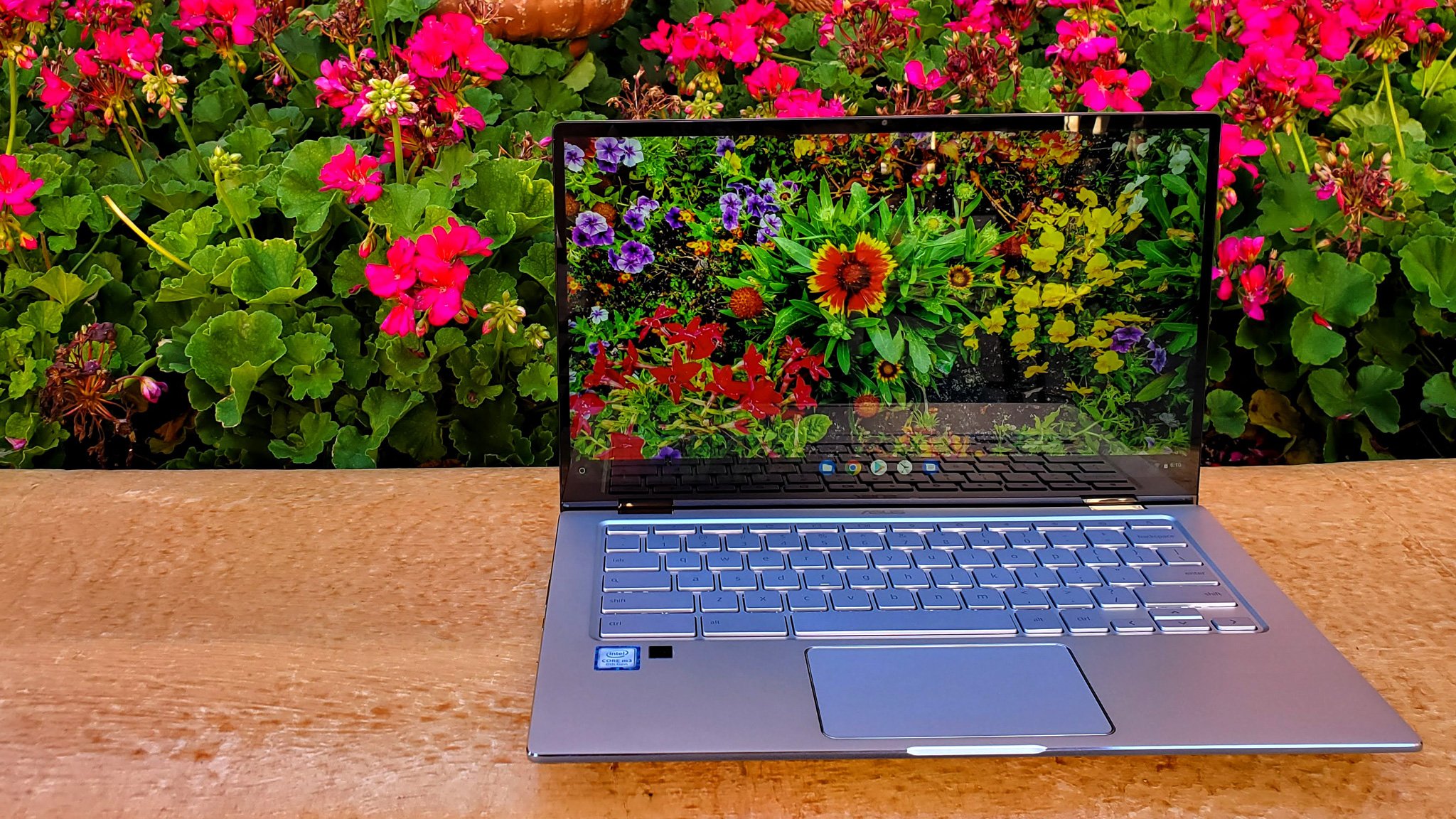
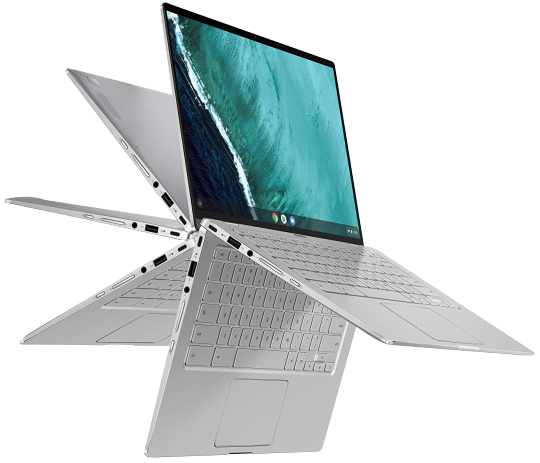
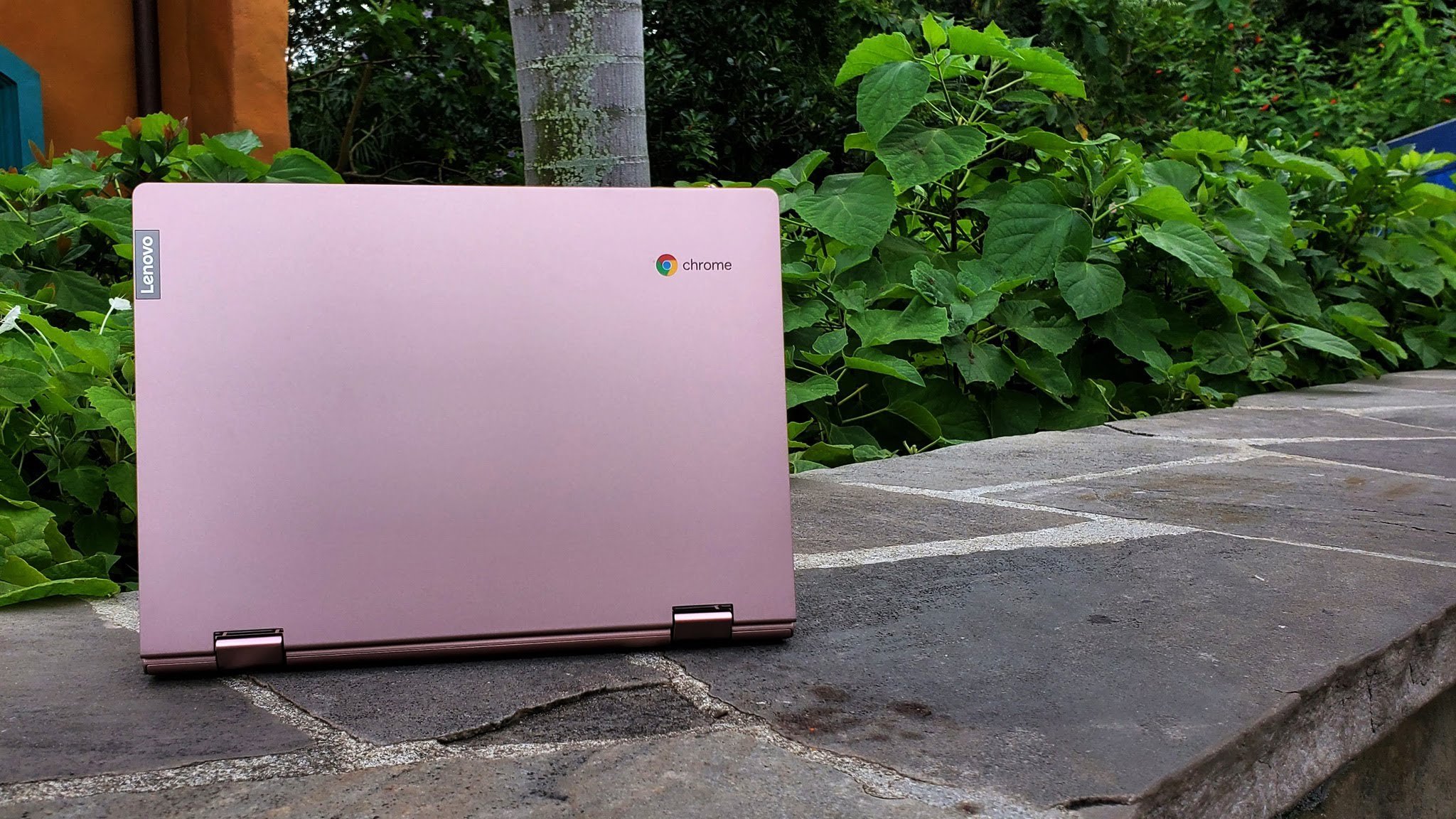
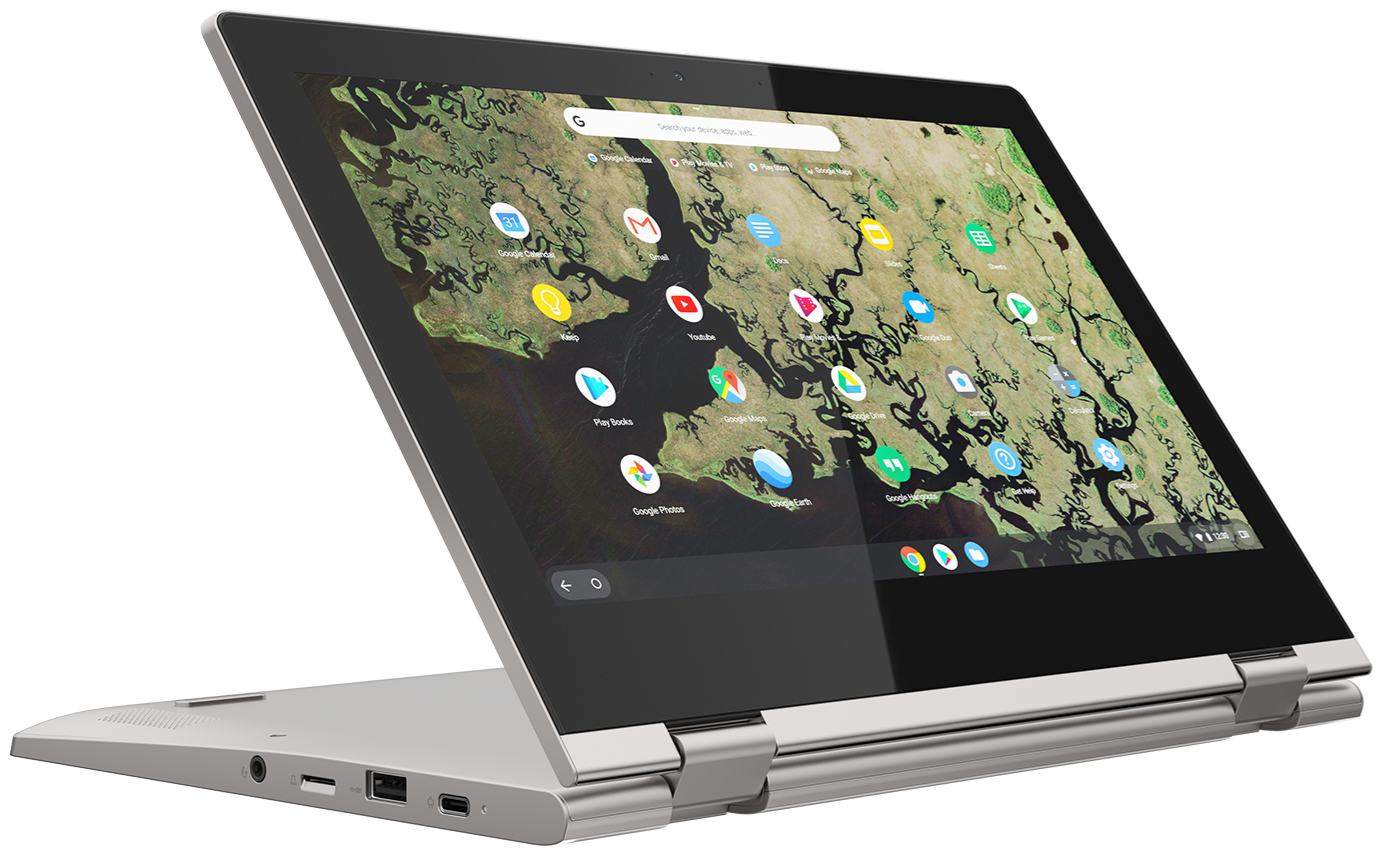
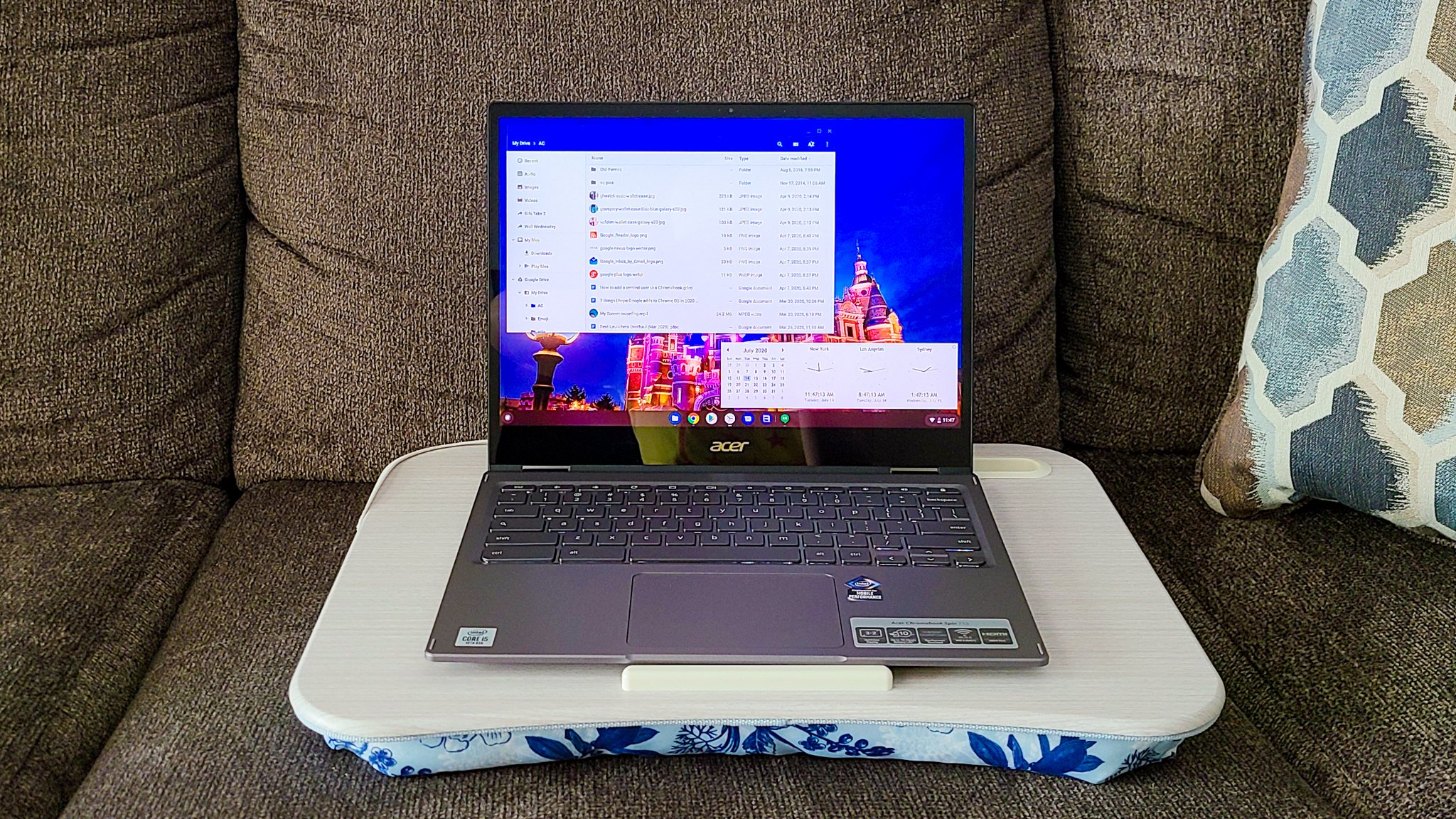


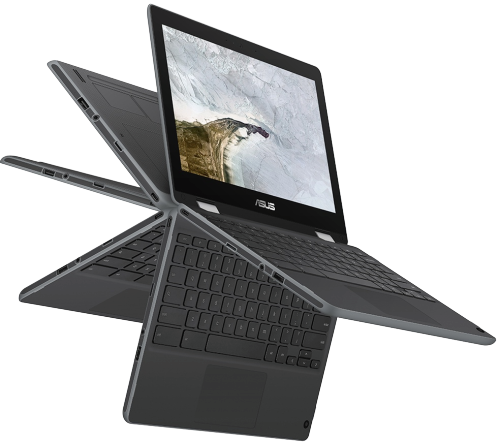
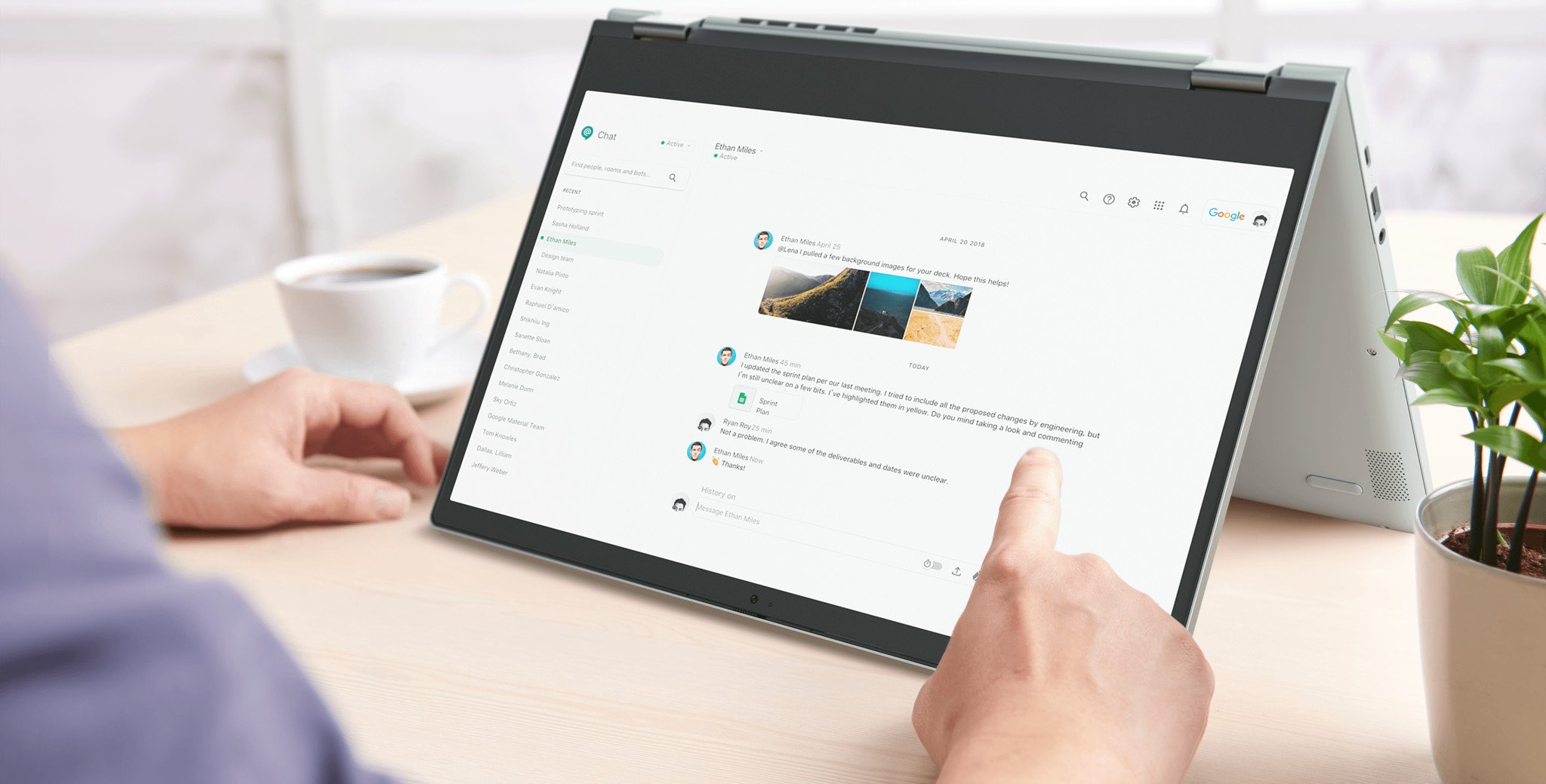
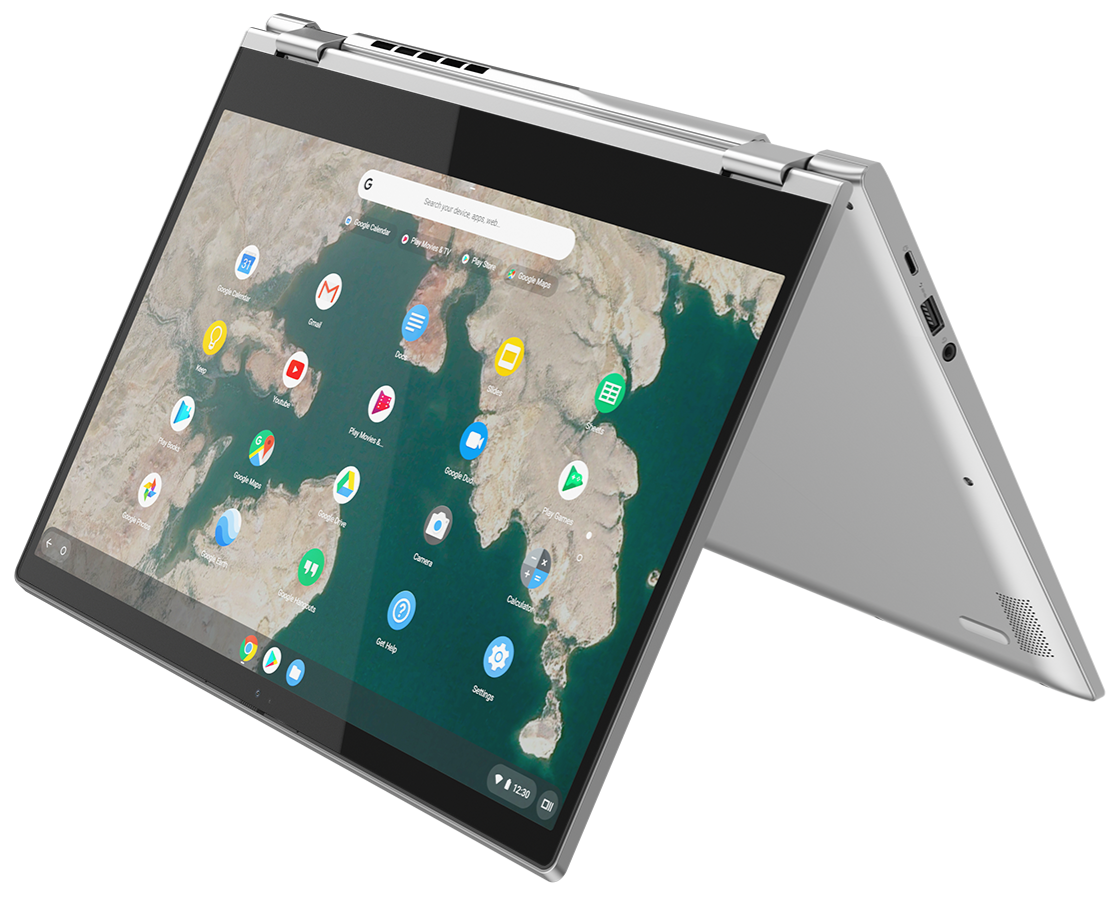
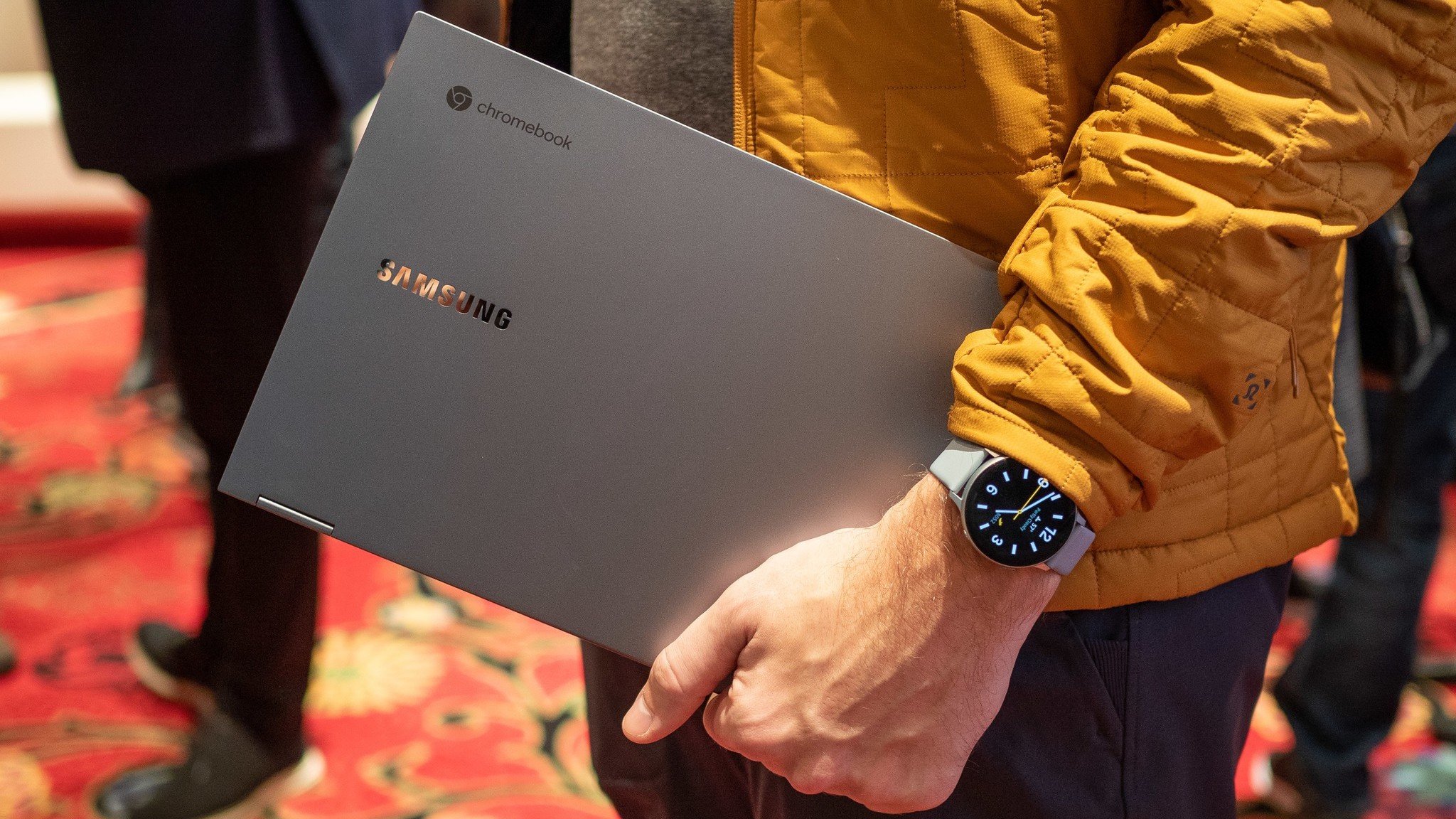

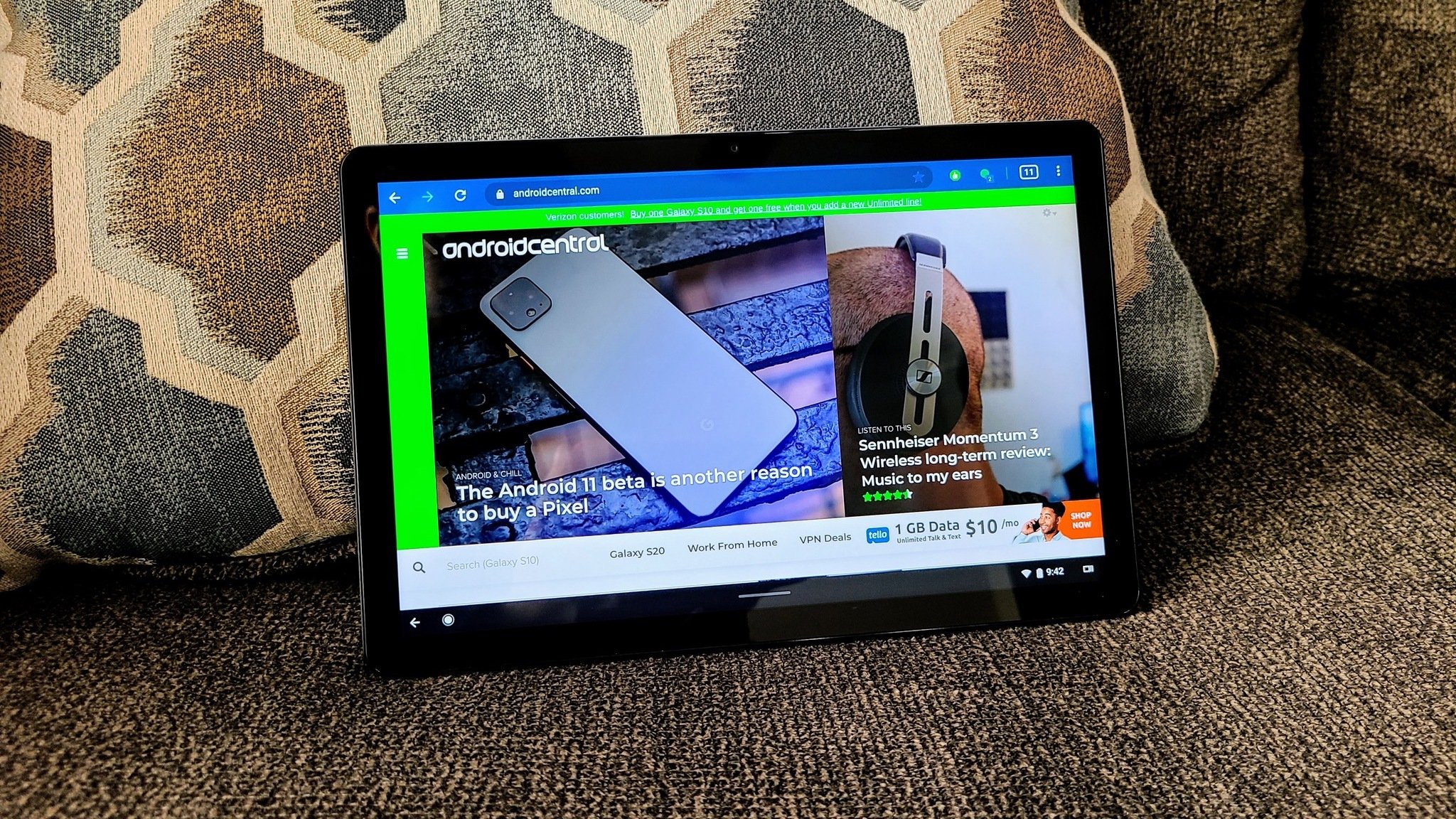
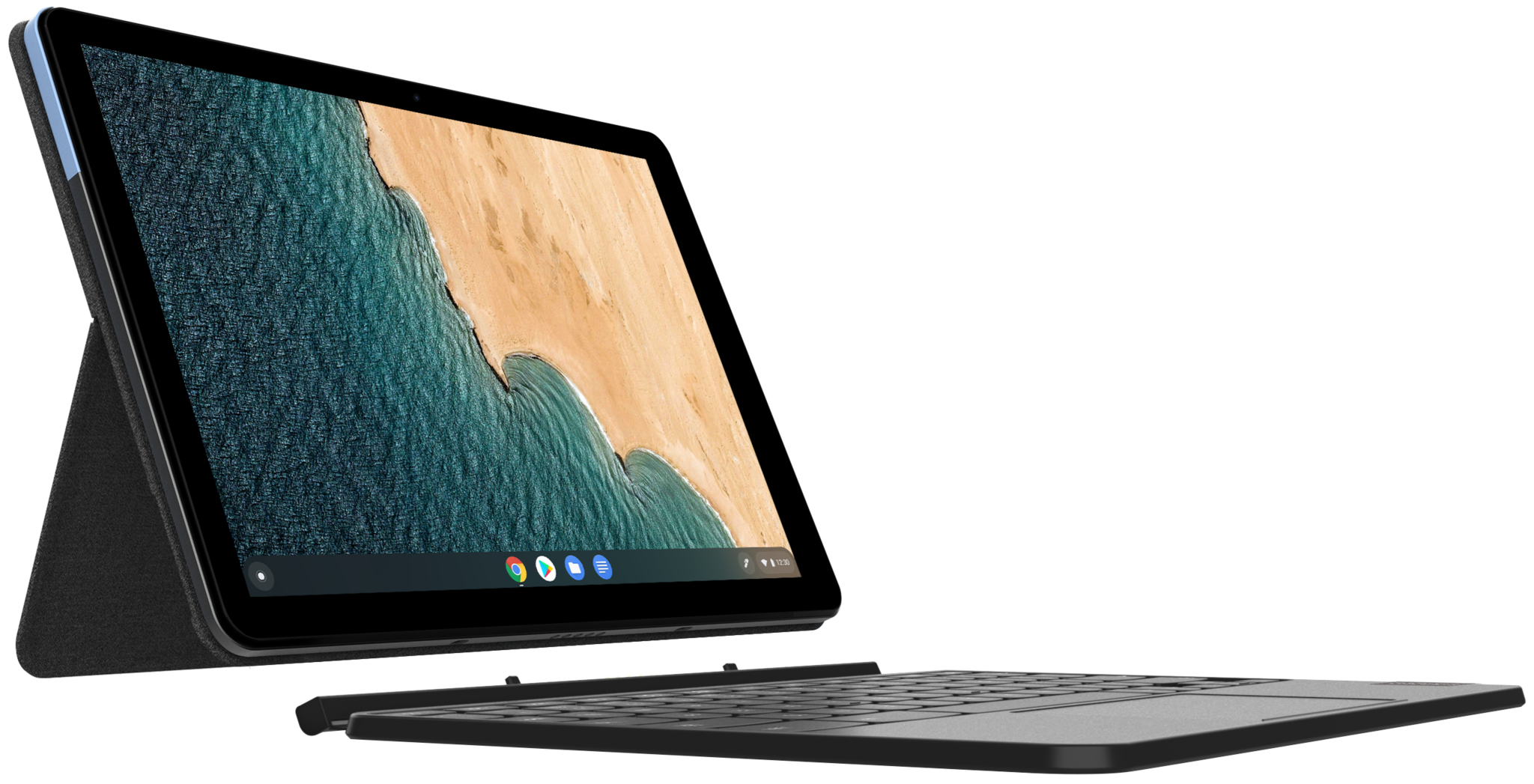

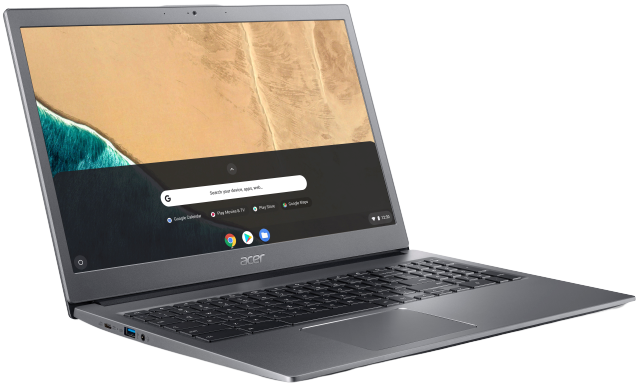
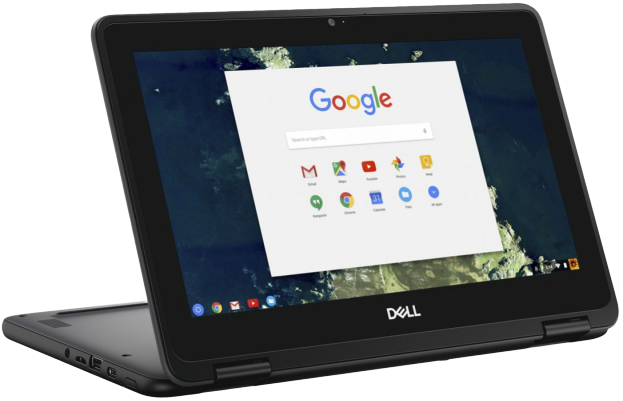
0 Response to "You Can See More: These are the best Chromebooks to buy for you and your family"
Post a Comment